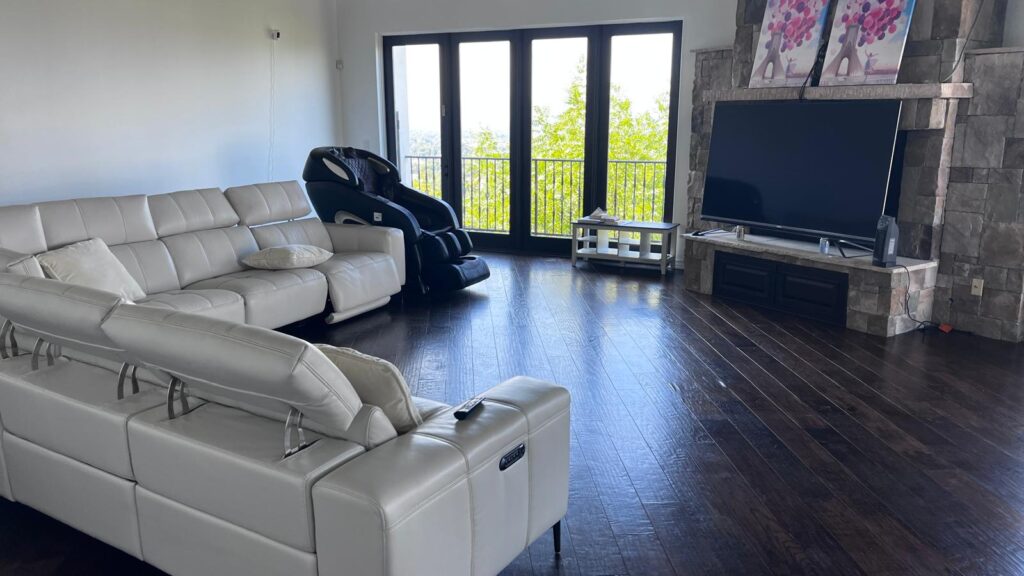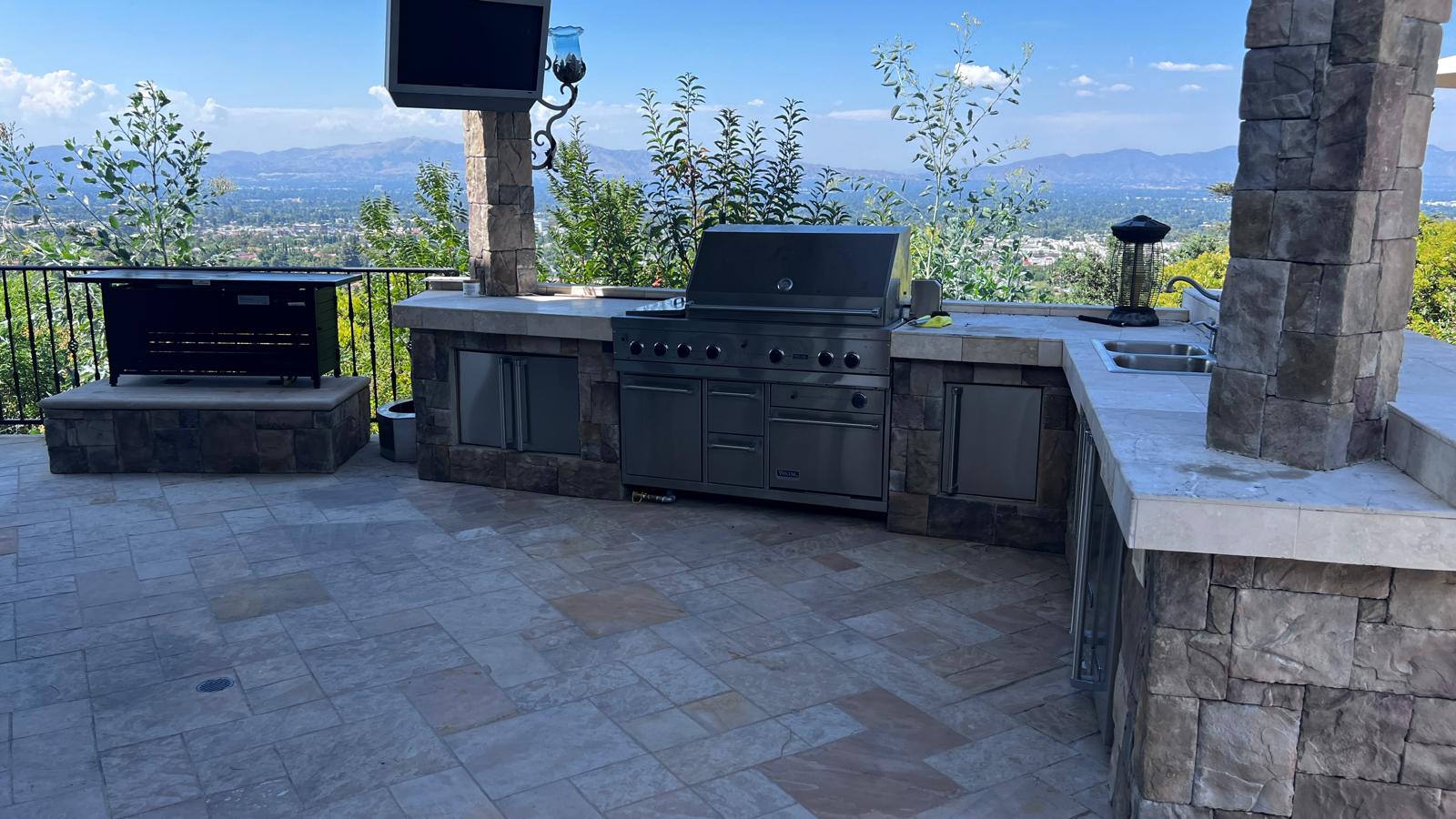When addiction takes hold of your life or the life of someone you love, finding the right path to recovery becomes paramount. For many individuals struggling with substance abuse, inpatient detox represents the crucial first step toward lasting sobriety. In Encino, California, a community known for its serene environment and proximity to world-class healthcare facilities, individuals seeking recovery have access to some of the most comprehensive and compassionate inpatient detox programs available.
As someone who has spent over two decades working in addiction medicine and witnessing thousands of recovery journeys, I can confidently say that choosing the right detox program can make the difference between a successful recovery and another cycle of addiction. The decision to enter inpatient detox Encino, CA is often one of the most important choices an individual will make in their lifetime, and understanding what to expect from this process is essential for both patients and their families.

Understanding Inpatient Detox: A Foundation for Recovery
Inpatient detoxification, also known as medical detox or residential detox, represents a medically supervised process where individuals safely withdraw from addictive substances while receiving round-the-clock care in a controlled environment. Unlike outpatient programs where patients return home each evening, inpatient detox requires individuals to remain at the facility for the duration of their treatment, typically ranging from three to ten days depending on various factors including the substance of abuse, duration of use, and individual health considerations.
The primary goal of any quality Encino inpatient alcohol rehab or drug detox program extends far beyond simply managing withdrawal symptoms. These programs are designed to stabilize patients physically and emotionally, prepare them for ongoing treatment, and provide the medical intervention necessary to ensure a safe transition from active addiction to early recovery.
What sets inpatient detox apart from other forms of treatment is the comprehensive nature of care provided. Patients have access to medical professionals 24 hours a day, seven days a week, ensuring that any complications or emergencies can be addressed immediately. This level of care becomes particularly crucial when dealing with substances that can produce life-threatening withdrawal symptoms, such as alcohol or benzodiazepines.
The Medical Detox Process: What to Expect
When someone enters a drug detox center Encino CA, the process typically begins with a comprehensive assessment conducted by medical professionals and addiction specialists. This initial evaluation examines not only the individual’s substance use history but also their overall physical health, mental health status, social support system, and any co-occurring medical conditions that might complicate the detox process.
During my years of practice, I’ve observed that the assessment phase often reveals underlying health issues that may have been masked by active addiction. Conditions such as liver damage from alcohol abuse, cardiovascular problems related to stimulant use, or respiratory issues associated with smoking substances are commonly discovered during this initial evaluation. This comprehensive assessment ensures that the medical team can develop an individualized treatment plan that addresses all aspects of the patient’s health and recovery needs.
The actual detoxification process varies significantly depending on the substance involved. For individuals requiring medical detox Encino, CA services for alcohol dependency, the process typically involves careful monitoring for signs of delirium tremens (DTs), a potentially life-threatening condition that can occur during alcohol withdrawal. Medical professionals may prescribe medications such as benzodiazepines to prevent seizures and reduce the severity of withdrawal symptoms.
For those undergoing opioid detox Encino CA, the process often involves medication-assisted treatment (MAT) using substances like buprenorphine or methadone to ease withdrawal symptoms and reduce cravings. The goal is not simply to eliminate the substance from the body but to do so in a way that minimizes discomfort and reduces the likelihood of relapse.
Comprehensive Treatment for Various Substances
Modern Encino residential addiction treatment centers are equipped to handle detoxification from a wide range of substances, each presenting unique challenges and requiring specialized approaches. Alcohol detoxification, as mentioned, carries particular risks due to the potential for seizures and other life-threatening complications. The medical team must carefully monitor vital signs, administer appropriate medications, and provide nutritional support to address the deficiencies commonly associated with chronic alcohol abuse.
Cocaine and methamphetamine detox present different challenges, primarily psychological rather than physical. While these substances don’t typically produce the same life-threatening withdrawal symptoms as alcohol or benzodiazepines, the psychological effects can be severe, including depression, anxiety, and intense cravings. A comprehensive approach that addresses both the physical and psychological aspects of withdrawal is essential for successful outcomes.
Prescription drug detox Encino CA has become increasingly important as the opioid crisis continues to affect communities across the nation. Many individuals who initially received prescription opioids for legitimate medical reasons find themselves dependent on these substances. Detoxing from prescription opioids requires the same careful medical supervision as illicit opioids, with the added complexity of potentially needing to address legitimate pain management needs.
Benzodiazepine withdrawal represents one of the most challenging detoxification processes, often requiring extended tapering protocols to prevent potentially fatal seizures. A quality medical detox program will have protocols in place to safely manage this complex withdrawal process, which may take weeks or even months to complete safely.
The Luxury Detox Experience in Encino
For many individuals, the concept of luxury detox Encino CA might seem contradictory – how can detoxification, often perceived as a difficult and uncomfortable process, be considered luxurious? The answer lies in understanding that luxury in this context doesn’t mean indulgence or pampering that might undermine recovery goals. Instead, it refers to providing the highest quality care in the most comfortable and dignified environment possible.
Luxury detox facilities in Encino often feature private or semi-private rooms, gourmet meals prepared by professional chefs with an understanding of nutrition’s role in recovery, spa-like amenities, and access to complementary therapies such as massage, acupuncture, and meditation instruction. These amenities serve a therapeutic purpose – they help reduce stress, promote relaxation, and create an environment where individuals can focus entirely on their recovery without the distractions and stressors of daily life.
The concept of luxury detox also extends to staffing ratios and individualized care. These facilities often maintain lower patient-to-staff ratios, ensuring that each individual receives more personalized attention and care. This enhanced level of service can be particularly beneficial for high-functioning individuals who may have specific needs or concerns about maintaining privacy during their treatment.
Dual Diagnosis: Addressing Co-Occurring Disorders
One of the most significant advances in addiction treatment over the past two decades has been the recognition and treatment of co-occurring mental health disorders. Detox with dual diagnosis Encino CA programs understand that addiction rarely occurs in isolation – it often develops alongside or as a result of underlying mental health conditions such as depression, anxiety, bipolar disorder, or post-traumatic stress disorder.
During my clinical practice, I’ve observed that approximately 60-70% of individuals entering detoxification have at least one co-occurring mental health condition. Failing to address these underlying conditions significantly increases the likelihood of relapse and decreases the chances of long-term recovery success. A comprehensive dual diagnosis approach ensures that both the addiction and the mental health condition are treated simultaneously, providing individuals with the tools and strategies necessary to manage both conditions effectively.
The treatment of dual diagnosis during detox requires a carefully coordinated approach between addiction medicine specialists and mental health professionals. Medications must be carefully selected to avoid interactions with detox protocols while still providing effective treatment for mental health symptoms. This delicate balance requires expertise and experience that can only be found in specialized dual diagnosis treatment centers.
Holistic Approaches to Detoxification
Modern substance abuse treatment Encino CA facilities increasingly recognize the importance of treating the whole person, not just the addiction. Holistic detox Encino CA programs incorporate evidence-based complementary therapies alongside traditional medical treatment to address the physical, emotional, and spiritual aspects of recovery.
Nutritional therapy plays a crucial role in holistic detox programs. Chronic substance abuse often leads to severe nutritional deficiencies that can complicate the detox process and slow recovery. Professional nutritionists work with medical staff to develop meal plans that support the body’s natural detoxification processes while addressing specific deficiencies commonly associated with various substances of abuse.
Mindfulness-based interventions, including meditation, yoga, and breathwork, have shown significant promise in reducing withdrawal symptoms and preparing individuals for ongoing recovery. These practices help individuals develop healthy coping mechanisms for managing stress, anxiety, and cravings – skills that will prove invaluable throughout their recovery journey.
Acupuncture has gained recognition as an effective complementary treatment for addiction, particularly in managing withdrawal symptoms and reducing cravings. Many holistic detox programs incorporate regular acupuncture sessions as part of their standard treatment protocol, with many patients reporting significant relief from withdrawal discomfort.
The Importance of Location: Why Encino?
The choice of California inpatient detox location can significantly impact treatment outcomes, and Encino offers several unique advantages for individuals seeking recovery. Located in the San Fernando Valley, Encino provides a peaceful, suburban environment that feels removed from the urban stressors that may have contributed to addictive behaviors, while still maintaining access to world-class medical facilities and addiction treatment professionals.
The climate in Encino is conducive to healing and recovery year-round, with mild temperatures and abundant sunshine that can help combat the depression and mood disturbances often associated with early recovery. Many facilities take advantage of this climate by incorporating outdoor activities and therapy sessions into their treatment programs.
Ventura County detox centers and San Fernando Valley rehab facilities benefit from California’s progressive approach to addiction treatment and mental health services. The state has invested heavily in treatment infrastructure and has implemented policies that support evidence-based treatment approaches and reduce barriers to accessing care.
Insurance and Financial Considerations
One of the most common concerns I encounter when speaking with individuals considering inpatient detox is the cost of treatment and insurance coverage. The good news is that the Mental Health Parity and Addiction Equity Act, along with the Affordable Care Act, has significantly expanded insurance coverage for addiction treatment services.
Most major insurance plans now cover inpatient detoxification when it’s deemed medically necessary, which is typically the case for individuals with severe withdrawal symptoms or those who have been unsuccessful with outpatient treatment in the past. However, coverage can vary significantly between insurance providers and specific plans, making it essential to verify benefits before beginning treatment.
For those wondering about the cost of inpatient detox Encino CA without insurance, prices can range from several thousand dollars for basic medical detox to tens of thousands of dollars for luxury programs lasting several weeks. While these costs may seem substantial, it’s important to consider the long-term financial implications of untreated addiction, including lost wages, legal fees, medical expenses, and the costs associated with repeated treatment attempts.
Many facilities offer payment plans, sliding fee scales, or scholarship programs to help make treatment accessible to individuals regardless of their financial situation. The investment in quality inpatient detox often pays dividends in terms of improved treatment outcomes and reduced likelihood of requiring additional treatment in the future.
Continuing Care and Long-Term Recovery
Successful detoxification represents just the beginning of the recovery journey, not its conclusion. Quality inpatient addiction recovery Encino CA programs understand this and work closely with patients to develop comprehensive continuing care plans that address ongoing treatment needs.
Post-detox treatment Encino CA options typically include residential treatment programs, intensive outpatient programs, individual counseling, group therapy, and participation in mutual support groups such as Alcoholics Anonymous or Narcotics Anonymous. The specific combination of continuing care services depends on individual needs, circumstances, and preferences.
Sober living Encino CA facilities provide a valuable transitional step between intensive treatment and independent living. These structured environments offer peer support, accountability, and continued access to treatment services while allowing individuals to gradually reintegrate into their communities and rebuild their lives.
The importance of continuing care cannot be overstated. Research consistently shows that individuals who engage in ongoing treatment following detox have significantly better long-term outcomes than those who attempt to maintain sobriety without continued support. A quality detox program will have established relationships with continuing care providers and will work actively to ensure seamless transitions between levels of care.

Family Involvement and Support Systems
Addiction affects not only the individual struggling with substance abuse but also their family members and loved ones. Progressive treatment programs recognize the importance of family involvement in the recovery process and provide opportunities for education, counseling, and healing for family members as well.
Family education programs help loved ones understand the disease of addiction, learn how to provide appropriate support without enabling, and develop healthy boundaries that support both their own well-being and their loved one’s recovery. These programs often include sessions on recognizing signs of relapse, understanding the stages of recovery, and accessing resources for ongoing support.
Many facilities offer family therapy sessions during the detox process, providing opportunities for healing damaged relationships and improving communication patterns. These sessions can be particularly valuable in addressing the trauma and hurt that often accompany active addiction and creating a foundation for healthier relationships in recovery.
Choosing the Right Detox Program
Selecting the appropriate inpatient detox program requires careful consideration of multiple factors, including the specific substances involved, the severity of addiction, co-occurring conditions, insurance coverage, and personal preferences. During my years in practice, I’ve developed a systematic approach to help individuals and families make this crucial decision.
First, it’s essential to ensure that any program under consideration is properly licensed and accredited by recognized organizations such as The Joint Commission or the Commission on Accreditation of Rehabilitation Facilities (CARF). These accreditations indicate that the program meets rigorous standards for safety, quality, and effectiveness.
Second, the program should have experience treating individuals with similar presentations and substance use patterns. A program that excels at treating alcohol addiction may not be the best choice for someone struggling with methamphetamine dependence, and vice versa.
Third, the availability of dual diagnosis services is crucial for individuals with co-occurring mental health conditions. Programs that lack psychiatric services or experience treating dual diagnosis patients may not be equipped to provide comprehensive care for these complex cases.
Finally, the program’s approach to continuing care planning and discharge planning should align with the individual’s long-term recovery goals and circumstances. Programs that view detox as an isolated intervention rather than the first step in a longer recovery journey may not provide the foundation necessary for lasting sobriety.
The Science of Withdrawal and Recovery
Understanding the neurobiological basis of addiction and withdrawal can help individuals and families appreciate why professional medical supervision during detox is so important. Chronic substance use creates significant changes in brain chemistry, particularly in areas responsible for reward processing, decision-making, and stress response.
When substances are discontinued, the brain must readjust to functioning without these artificial stimulants or depressants. This readjustment process, known as withdrawal, can produce a range of physical and psychological symptoms that vary depending on the substance involved, the duration and intensity of use, and individual factors such as genetics and overall health status.
The medical management of withdrawal involves more than simply making patients comfortable – it’s about supporting the brain’s natural healing processes while preventing potentially dangerous complications. Medications used during detox are carefully selected based on their ability to cross-reference withdrawal symptoms while minimizing the risk of dependence or other adverse effects.
Recent advances in addiction medicine have led to the development of new medications and treatment approaches that can significantly improve the detox experience and reduce the likelihood of relapse. These innovations continue to improve outcomes for individuals seeking recovery from substance abuse.
Frequently Asked Questions About Inpatient Detox in Encino
What is inpatient detox and how is it different from outpatient detox?
Inpatient detox involves staying at a medical facility for the duration of your withdrawal process, typically 3-10 days, with 24-hour medical supervision and support. This differs from outpatient detox, where you visit a clinic daily for medication and monitoring but return home each evening. Inpatient detox is recommended for individuals with severe withdrawal symptoms, multiple failed detox attempts, lack of social support, or substances that pose significant medical risks during withdrawal.
How long does inpatient medical detox typically last in Encino?
The duration of inpatient medical detox varies based on several factors, including the substance involved, length of use, individual health status, and severity of withdrawal symptoms. Most alcohol detox programs last 3-7 days, while opioid detox may require 5-10 days. Benzodiazepine detox can take significantly longer, sometimes requiring weeks of careful tapering to prevent dangerous withdrawal complications.
What types of substances are treated at inpatient detox centers in Encino?
Comprehensive inpatient detox centers treat withdrawal from all major substances including alcohol, opioids (prescription painkillers and heroin), benzodiazepines, stimulants (cocaine and methamphetamine), and prescription medications. Many centers also provide specialized protocols for synthetic drugs and multiple substance dependencies.
What should I expect during the medical detox process?
Upon admission, you’ll undergo a comprehensive medical and psychological assessment. Medical staff will monitor your vital signs regularly and may administer medications to ease withdrawal symptoms and prevent complications. You’ll have access to medical care 24/7, nutritional support, and often complementary therapies. The process includes preparation for ongoing treatment and discharge planning.
Is inpatient detox a safe option for severe withdrawal symptoms?
Yes, inpatient detox is often the safest option for severe withdrawal symptoms, particularly for alcohol, benzodiazepines, and other substances that can cause life-threatening complications. The 24-hour medical supervision ensures immediate intervention if dangerous symptoms develop, making it significantly safer than attempting detox without medical supervision.
Does insurance cover the cost of inpatient detox in Encino?
Most insurance plans are required to cover medically necessary addiction treatment, including inpatient detox, under the Mental Health Parity and Addiction Equity Act. Coverage varies by plan, so it’s important to verify your specific benefits. Many facilities have insurance verification specialists who can help determine your coverage and out-of-pocket costs.
How much does inpatient detox cost without insurance?
Without insurance, inpatient detox costs typically range from $3,000 to $10,000 for standard programs, with luxury facilities potentially costing significantly more. Many facilities offer payment plans, sliding fee scales, or scholarship programs to make treatment accessible regardless of financial situation.
What are the benefits of choosing an inpatient program over an outpatient one?
Inpatient programs offer 24-hour medical supervision, removal from triggers and stressors, peer support from other patients, comprehensive services under one roof, and immediate access to emergency medical care. This intensive level of support often leads to better completion rates and smoother transitions to ongoing treatment.
Are inpatient detox facilities in Encino confidential?
Yes, all reputable inpatient detox facilities must comply with strict confidentiality laws, including HIPAA regulations. Your treatment information cannot be shared without your written consent, except in specific legally mandated circumstances such as imminent danger to self or others.
Do I need a doctor’s referral to be admitted to an inpatient detox center?
Most inpatient detox centers do not require a doctor’s referral, though some insurance plans may require pre-authorization or a referral for coverage. Many facilities can conduct their own medical assessment to determine if inpatient detox is appropriate for your situation.
What is a “dual diagnosis” and how is it treated during inpatient detox?
Dual diagnosis refers to having both a substance use disorder and a co-occurring mental health condition such as depression, anxiety, or bipolar disorder. During inpatient detox, both conditions are treated simultaneously by a coordinated team of addiction medicine specialists and mental health professionals.
What amenities are typically offered at luxury inpatient detox centers in Encino?
Luxury detox centers often provide private rooms, gourmet meals, spa services, fitness facilities, meditation gardens, complementary therapies (massage, acupuncture), recreational activities, and lower staff-to-patient ratios for more individualized attention.
What happens after inpatient detox is complete?
After detox, patients typically transition to ongoing treatment such as residential rehabilitation, intensive outpatient programs, individual counseling, or sober living facilities. A comprehensive discharge plan is developed to ensure continuity of care and support long-term recovery goals.
How do I choose the right inpatient detox center for my needs?
Consider factors such as accreditation, staff credentials, treatment approaches, dual diagnosis capabilities, insurance acceptance, location, amenities, and aftercare planning. Schedule tours or consultations to get a feel for the facility’s culture and approach to treatment.
What kind of support is available to me after I complete detox?
Post-detox support options include residential treatment programs, outpatient counseling, group therapy, medication management, sober living homes, mutual support groups, and ongoing case management services to help coordinate continuing care.
What are the common physical and psychological withdrawal symptoms during detox?
Withdrawal symptoms vary by substance but may include anxiety, depression, nausea, sweating, tremors, insomnia, irritability, cravings, fatigue, and mood swings. Medical staff monitor these symptoms closely and provide appropriate interventions to ensure safety and comfort.
Is it possible to leave an inpatient detox program at any time?
In most cases, patients can leave voluntarily unless they are under a legal hold or pose a danger to themselves or others. However, leaving detox early significantly increases risks and reduces the likelihood of successful long-term recovery.
What is the success rate of inpatient detox programs?
Success rates vary depending on how success is measured and individual factors. Most people complete inpatient detox successfully, but long-term sobriety requires ongoing treatment and support. Studies show that individuals who complete detox and continue with treatment have significantly better outcomes.
Can family members be involved in the treatment process?
Yes, most programs encourage family involvement through education sessions, family therapy, visitation, and participation in discharge planning. Family support plays a crucial role in recovery success, and many facilities offer resources specifically for family members.
What sets Encino’s inpatient detox centers apart from others in California?
Encino’s detox centers benefit from the area’s serene environment, access to highly qualified medical professionals, proximity to comprehensive continuing care resources, favorable climate for healing, and California’s progressive approach to addiction treatment and mental health services.
Conclusion: Taking the First Step Toward Recovery
Choosing to enter inpatient detox represents an act of courage and self-compassion that deserves recognition and support. The decision to seek professional help for addiction is never easy, but it’s often the most important decision someone struggling with substance abuse will make.
The comprehensive Encino drug and alcohol rehab programs available today offer hope and healing for individuals and families affected by addiction. With proper medical supervision, evidence-based treatment approaches, and compassionate care, recovery is not only possible but probable for those willing to commit to the process.
If you or someone you love is struggling with addiction, don’t wait for tomorrow to seek help. The resources and expertise available through quality inpatient detox programs can provide the foundation necessary for lasting recovery and a return to health, happiness, and fulfillment.
Remember that addiction is a treatable medical condition, not a moral failing or personal weakness. With the right support and treatment, anyone can overcome addiction and build a meaningful, substance-free life. The journey begins with a single step – and that step is reaching out for help.
For more information about comprehensive addiction treatment services, visit Grand View Villas Recovery or explore their specialized detox services and residential treatment programs. Their experienced team of addiction professionals is ready to help you or your loved one take the first step toward lasting recovery. You can also learn more about their specific detox programs in Encino and comprehensive detox center services.
The path to recovery begins with a single step. Take that step today.





